- Home
- James Phelan
Red Ice Page 26
Red Ice Read online
Page 26
“They know about this secret protocol?”
“If they don’t they will soon enough.”
“Unless we stop him.”
“You got it, Lach. Anyway,” said Hutchinson, “I’ll be on the New York, got helos and Ospreys ready for emergency evac—if you need it, just holler.”
He gave Fox two sets of comms gear—little radio boxes that clipped onto a belt with concealed earpieces and mics.
Hutchinson showed him a switch: “Encrypted line. Press it down to do your talking, we’re on the set frequency.”
“Got it.”
“I gotta leave,” Hutchinson explained, checking his watch. “I gotta go so a couple of MI6 guys can come back in and look after … whoever. Already late. Good luck.”
“I’ll see you on the other side of this.”
“Sounds good,” Hutchinson said, turning his chair and heading for the door. “The document is priority.”
“I can do that.” Fox walked him to the door.
“Whatever it takes,” Hutchinson said. He handed him a pistol—a Heckler & Koch .45 SOCOM.
Fox held it and the spare mag. A nice, familiar weight.
“On the plane,” Hutchinson said quietly, his eyes serious. “when Babich and his guys killed everyone else—Capel, Brick, the Navy pilots—I heard them slit Capel’s throat. Then the motherfucker personally put one in my leg and two in my chest.”
He pointed at the pistol.
“Lach, you always wanted more justice than the law could provide,” he said. “Tonight you’ll have your chance.”
He wheeled away. Fox felt the weight of the loaded gun in his hand.
92
WASHINGTON, DC
Everyone in the room, including McCorkell, had come to a standstill. The deadline ticked to zero. Every face was turned to the main screen.
Bowden was holding court, “NSA intercepted this video file—it was being sent over the net from Shanghai to Moscow. From Babich, starring Babich. Twelve minutes long, recipient is a senior Umbra Corp figure—head of their media operations. Message sent with the video orders its dissemination to international media outlets, to air after a live announcement he’s gonna make in an hour from now.”
Bowden pressed play.
Babich was seated against a blank background. He was dressed in a conservative suit and tie, he’d had a haircut, and he looked like any other plutocratic statesman.
He introduced himself and spent several minutes talking about how the charges against him were trumped up because he was successful in business. He cited several other proven ‘wrongly accused’ cases, and he questioned the legality of his arrest. Nothing unusual there. Then—
“I have proof that members of the current Russian government and certain elements of the state security apparatus were behind the 1999 apartment bombings that rocked our nation. I have given these men the chance to come clean on their own accord, or I will present such proof against them in a meeting with the international press. I will name names. Those who framed me because I am successful will be shown to the world as the men they really are. I do not want to live in exile, like so many of my friends have done in London and elsewhere when threatened with similar false charges as have been laid against me. I want to return to my motherland and I want to make a difference for her people. I want to get rid of the criminals. I want to make it a nation to be proud of again.
“The primary purpose of government is to protect the citizens and provide those services which would not be provided by business or those which are considered universally ‘good,’ such as healthcare, education, police and the military. We need to work on that. I have the answers—not all of them, but enough to make a difference and enough to start a dialogue with the people.”
He paused.
“Make no mistake: you cannot root out the problem of corruption through imprisonment alone—but you must sling the corrupt into jail anyway. You must be forceful. You must be thorough and vigilant.
“The law is for one and all—for ruling and opposition parties … Freedom means responsibility. I hope everyone understands that. Thank you.”
The video ended.
“Jesus…” McCorkell said. “This son of a bitch doesn’t want to trade this secret protocol with the Russians for a free pass back home. He wants to use it to trade with us.”
“What are you taking about?” Bowden asked.
“He’s going to drop this truth bomb into the parliament, bring it down and get power,” McCorkell said. “He doesn’t need this secret protocol for that, he’s had that wildcard—this proof—all along.”
McCorkell had a blank stare as he ran through the many possibilities.
Valerie got it, repeated: “He’s going to…”
“Like we’ll have…”
“He’s going to trade this secret protocol to us…”
“Like we’ll have a choice!” Bowden said. He was getting it now. “He can trade it for—well, what couldn’t he trade it for, really?”
“Missile shield and military concessions, economic compensation…” Valerie said. “How could our leaders turn it down? No matter what he wants, how could they turn it down? They won’t. They can’t.”
McCorkell looked at the freeze-frame of Babich. He thought back to something Fox had said just before on the phone, how the secret protocol was Babich’s get-out-of-jail-free card. He had a nervous weight of dread in his gut—Fox was going to get played.
93
SHANGHAI
Andrew Hutchinson had left them with Agent McKee, and she presented some printed invites and wristbands to the evening’s after-dinner cocktail party.
Kate was seated on the sofa nursing a drink and looking out at the fairy lights of the Bund. Fox imagined she was thinking of Paris or Amsterdam. He had a flashback to the ball in St Petersburg, at St Catherine’s Palace, where they’d first met.
“The dinner is on the ninety-third floor with two hundred and fifty guests, it will have wound up at midnight, but there’ll still be stragglers,” agent McKee said, checking her watch. “Then there’s drinks on the observation deck, for which you need the wristbands. It’ll be pretty packed so it’ll be hard to spot anyone in the crowd.”
Fox examined the wristbands, which had coded security chips. A secure place in a secure building in a secure zone. Perfect for a handover.
“I’ll stay based in here with the firepower,” McKee said to Fox. She opened a case that contained a SIG SG 553 assault rifle, equipped with EOTech holographic sight and a Brügger & Thomet suppressor. It was known for being as reliable and well engineered as a Swiss watch, with a similar operating system to the indestructible AK-47. She took it out, loaded a translucent polymer magazine stracked full of rounds.
“What’s in here…?” Gammaldi asked, opening a holdall. Half a dozen Kevlar vests. “That was a bit anticlimactic. I thought there’d be a bazooka or something so we could take the building, Cajun-style.”
“You should all put one on,” McKee said, pointing at the vests. “There’s changes of clothes in the wardrobe too, so you fit in to the crowd. Hutchinson guessed your sizes and I ordered them through the concierge, so don’t blame me if they’re wrong.”
“Yeah, let’s get cleaned up first,” Fox said. “Ready in ten.”
“Hey, you should go check out the toilet,” Gammaldi said. “Opens its lid as you approach.”
“How’d I ever live without that?” Fox replied, checking over his SOCOM pistol. “Isn’t this the place where they put a Porsche into the lift?”
“Yeah,” Agent McKee said. “Shanghai Auto Show, Porsche wanted to showboat a little. So what do they do? Send a Porsche Panamera to the ninety-fourth floor of the Shanghai World Financial Center. In a lift—a Porsche!”
“Cool,” Gammaldi said, coming out of the kitchenette with the full room-service menu. “Room service good?”
“Best in Shanghai.”
�
�Excellent.”
Fox opened the suite’s door, double-checked the sightlines and exits in the hallways and fire escapes, noting how they correlated to the schematics he’d downloaded on the flight.
He went into the bedroom, looked at the black suit and shirt hanging in the wardrobe—seemed about his size. He headed into the en suite and started undressing, filling the basin with warm water—
Zoe entered. She seemed oblivious to him, half-closed the door, looked at the scars on his torso. She started to undress.
“Sorry,” he said. “I’ll let you take a shower.”
“You can join me,” she said. Not waiting for a reply she took off her pants, then removed her shirt, transformed from cop to Victoria’s Secret model. “You have seen some wars,” she said, looking closely at the map of scars on his body.
Fox wearing just his pants; Zoe in her underwear, revealing a smoking hot body, leaner than Kate, but still with curves …
She moved in and kissed him, lightly, then licked her lips.
Fox smiled, left the room and closed the door behind him. Out in the lounge, Kate was on her phone, animated. She ended the call when she saw his reflection in the window. She looked like she’d been crying.
Gammaldi was playing Call of Duty on an Xbox. Agent McKee was sitting at the table with the assault rifle in front of her.
There was a knock at the door. Fox went to answer it, but McKee was there first, her hand on her holstered pistol as she checked the peephole. She opened the door, spoke through the chain, then let a man in.
Tall guy, late thirties, handsome, friendly, nervous.
“Who’s this?” Fox asked. He heard shuffling behind him—Kate had come into the entryway. The guy looked over Fox’s shoulder; there was something in that look.
“My name is Jacob,” he held out a hand, his accent was European; Dutch maybe. “Jacob van Rijn. You must be Lachlan Fox?”
“Yeah…”
He looked a little troubled and let his hand fall to his side. His gaze moved from Fox back to Kate.
“I am—how do I say this … I am Kate’s fiancé.”
94
SHANGHAI
The President of the European Commission sat opposite Babich in the penthouse suite. They had met several times before, and the man had even stayed a weekend in Babich’s villa at Lake Como. He didn’t own the guy—he thought he’d have another couple of years to cultivate this relationship—but he had influence over him. The fact that he came here at all showed him that.
“So, instead of a primitive economy based on raw materials, we shall create a smart economy,” Babich said. “Instead of an archaic society, in which leaders think and decide for everybody, Russia shall become one of intelligent, free and responsible people.”
“Look, Roman…” the EC President began, staring into his drink, searching for words. He was Danish, but his accent was almost American. “I’d help if I could, but my hands are tied on this—I mean, the way people think of you at the moment … I can’t be seen with you, let alone speak out and support you.”
Babich explained his arrest as a Russian-sponsored witchhunt, all because he’d dared to speak out about the government and they knew he would be running for the presidency at the next election. It was a half-truth, but the EC President trusted him enough to buy it. The man nodded and smiled; he was impressed with Babich, and he could see that the Chinese were also behind him. He sat there and listened, wary at first, but soon put at ease as Babich welcomed him like the kingmaker he was.
“You’re sure you can ascend to power?” the EC President asked. “You have the numbers in the Russian parliament?”
“As sure as I know how to breathe,” Babich replied.
“They want to silence me because I am a successful businessman, the future of Russia, a symbol of what can be achieved. They are stuck in the Soviet past and do not like that,” Babich said. “Sure, like President Vladimir Putin, I am a former employee of a KGB Directorate. But unlike so many who have gone on to head the state companies—for enormous personal gain—I have made myself. I have made myself and they have robbed the state. As long as that continues, Russia will be a problem, for itself and the world. I know that and you do too, yes?”
“Yes, Roman, you know that,” the Dane replied. “The Soviet Union may have collapsed, governments may have changed, but the people have not.”
“Exactly,” Babich said. “Tomorrow morning the world will wake and see those in power in my home country for who they really are. I will show the world the evidence I have of FSB involvement in the bombing of the Russian apartment buildings.”
That piqued his guest’s full attention—the man had worked as a legal investigator once, Babich had met him when he was working on a European Union inquiry into the bombings and their handling. Babich had been helpful, far more so than most, but always on background, and never with anything specific.
“We warned the Russian government some hours ago, and they have so far refused to respond—beyond, again, labelling me a criminal and accusing me of funding the terrorist activities of Chechen rebels,” Babich said, his smile showing that he was well used to such remarks. “They are scrambling and it will make their case even worse. I have the evidence that shows the Russian government bombed its own people—”
“They will say you fabricated it to—”
“I have witnesses, I have confessions,” Babich said, letting it sink in. “I am going to produce the people who carried out the Novsyelov bombing, the Ryazan training exercise, and the documentation and taped conversations of those official orders. And that is just the start!”
Babich laughed, and his guest was jovial, too.
“Roman,” the EC President said, leaning forward. “If you prove this—that the bombings were carried out by the state—it means the present government of Russia is illegitimate.”
“Precisely. Precisely.”
The Dane poured himself another drink and topped up Babich’s.
“Whatever I can do,” he said to Babich, looking him in the eyes. “However I can help you, I will do it.”
They clinked glasses and drank. Leaned back. Settled.
“You will be a hero, Roman.”
“We will both be heroes,” Babich said.
“More than that. This is big, for Russia and the world. This is world-changing. This is a historical turning point.”
Babich knew he’d picked the right ally in this man. He was hungry for his own place in history. This would be just the powerful rallying voice he needed in Western Europe.
“All free-thinking Russians are ashamed by what their government has been doing,” Babich said, downplaying his role. “No longer will they, and the rest of the world, be forced to decide whether freedom in Russia should be sacrificed on the altar of gas and oil. No longer. Enough sacrifice. I will force change through the truth, and that will open a new era for all of us.”
“What about the Americans?” the EC President asked. “If America does not accept your plans? They will still want to put you before a court.”
“My friend,” Babich said, leaning forward. “What do you know about the history of Alaska?”
95
SHANGHAI
Fox stood in the bedroom, alone. He watched the big city lights, burning bright. Looked out across the luminous Shanghai city, the river directly below, tourist shops and Chinese junks with incandescent globes strung from their masts. Life going about its business.
He sipped a Maker’s Mark, tempted to crawl into the bottle right now. He saw Kate’s silhouette in the doorway. The icecold glass comfortable in his hand. The ground below seemed to be crumbling.
In the reflection of the floor-to-ceiling window Kate looked worn out. Cried out. She closed the door behind her. Stood there.
Silence. Not a word.
His torso was still a mess, with dried blood here and there, the smell of the antiseptic she’d applied. The s
mell of her. He looked back at the view, drained his glass, and couldn’t not look at her reflection. He felt a sense of déjà vu. This place again. He picked his change of clothes out of the wardrobe, moved past her into the bathroom, took his shirt and pants off, started filling the basin with cold water, grabbed a washcloth; his hands shook as he tried to wash them. Next he scrubbed his body hard, the cut across his chest opened up again, fresh blood. He stopped, turned off the tap, closed his eyes and rested his weight against the stone basin, his hands in tight fists.
He felt her behind him, didn’t resist as she put her arms under his and encircled his middle. She rested her head gently on his back, a light embrace.
After a minute, he looked up to the mirror. He patted the wound on his chest with a hand towel, rummaged through the FBI agent’s medical pack and applied strips of tape across the cut, pulling it closed. A real mess. He sprayed some aerosol bandage on the skin, coated the wound, cauterised it. Kate stayed hooked onto him the whole time, her grip relaxed, silent.
“I’ve gotta go,” he said.
She released her arms.
He chucked the tape wrappers and bloody tissues in the bin. Went into the bedroom. Put on the new black shirt—it was a little loose, which was fine with him. Black suit pants fitted well.
Kate had followed him.
“Lach—”
“I’m okay with it.”
“We’ll talk about it—”
“Yeah, whatever,” he said, pouring another measure of bourbon over the melting ice and feeling it burn the back of his throat on the way down.

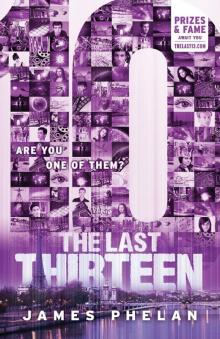 10
10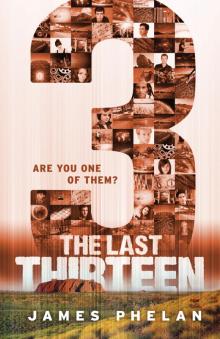 3
3 Survivor
Survivor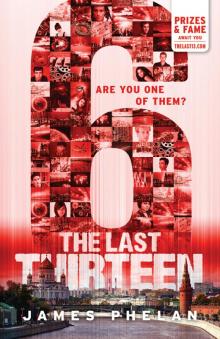 6
6 The Hunted
The Hunted Quarantine
Quarantine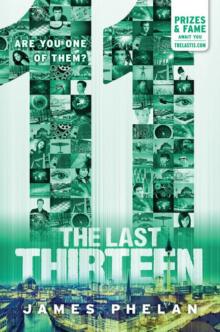 11
11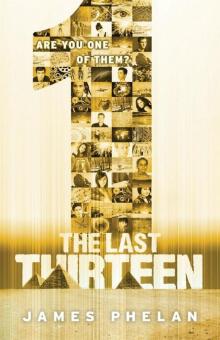 The Last Thirteen - 1
The Last Thirteen - 1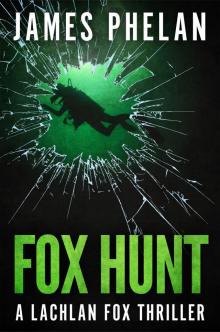 Fox Hunt
Fox Hunt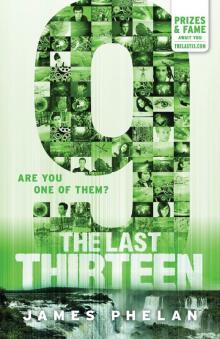 9
9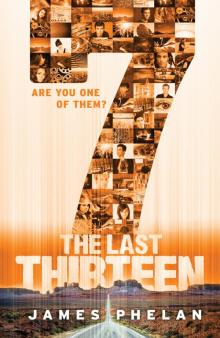 7
7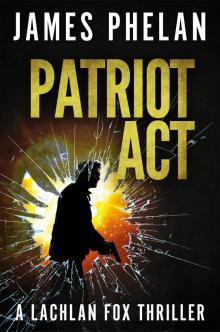 Patriot Act
Patriot Act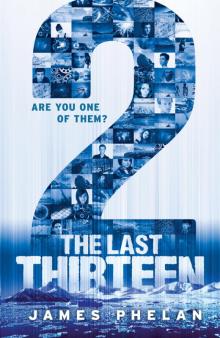 2
2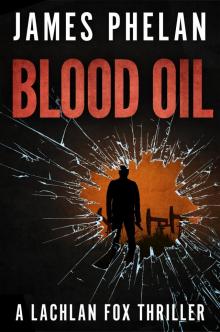 Blood Oil
Blood Oil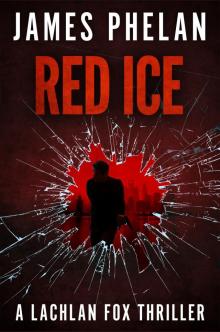 Red Ice
Red Ice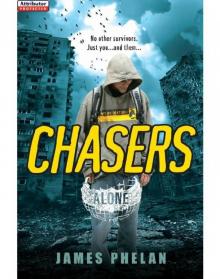 Chasers
Chasers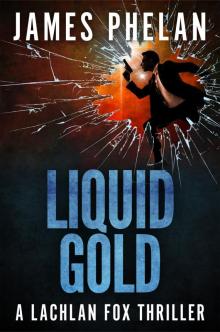 Liquid Gold
Liquid Gold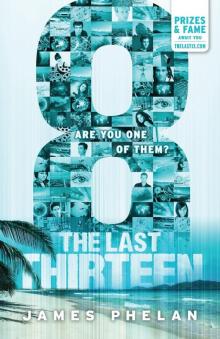 8
8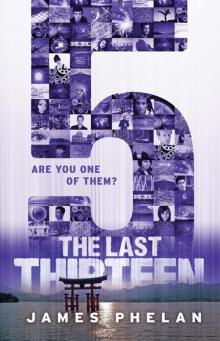 5
5 The Spy
The Spy Kill Switch
Kill Switch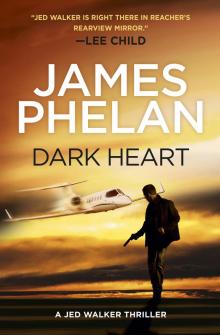 Dark Heart
Dark Heart